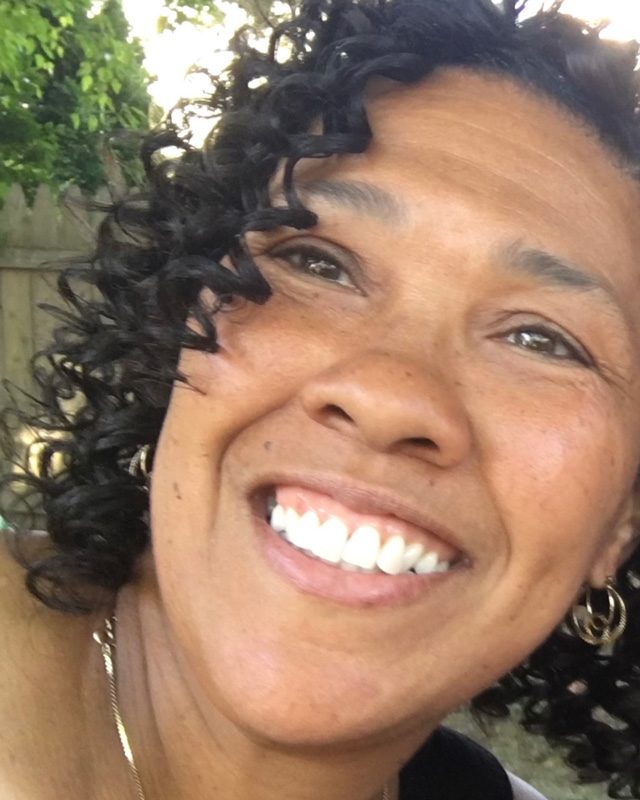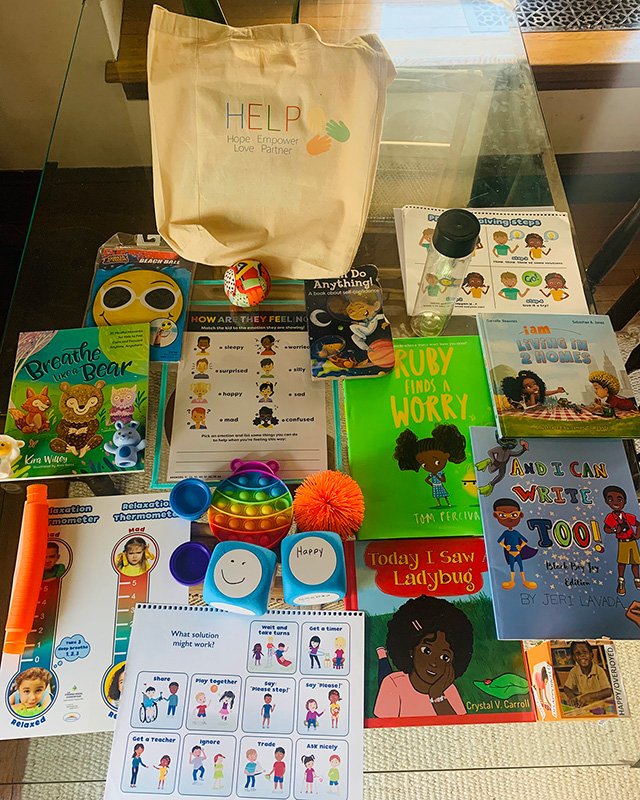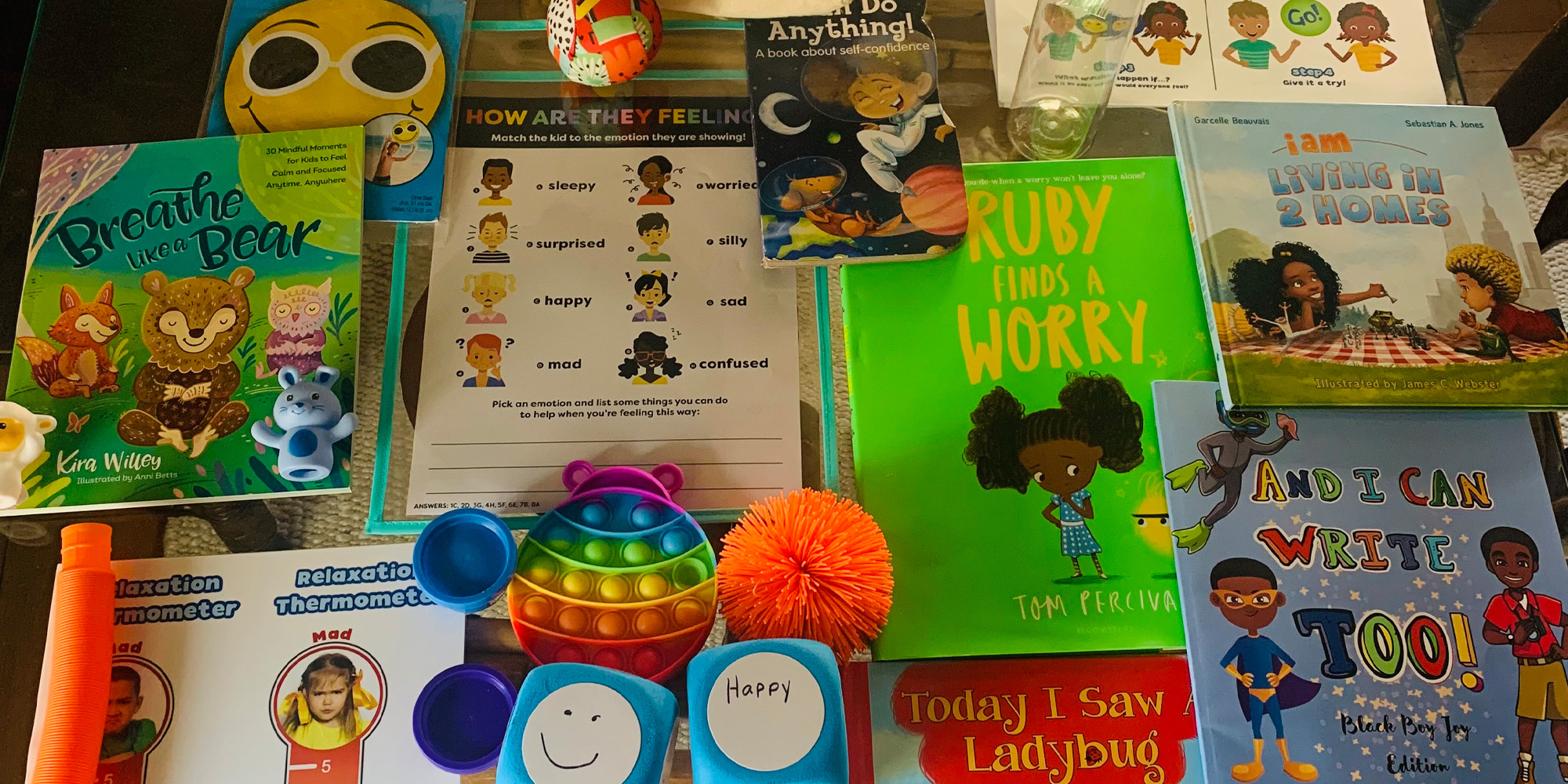I still have flashbacks to the time my elder child’s kindergarten teacher left me alone with the class. Opening Cloudy with a Chance of Meatballs, I began to read aloud, and almost instantly—pandemonium. (Stop laughing.)
And no wonder. In her Teacher Burnout Turnaround (2021), Patricia Jennings quotes Lee S. Shulman’s The Wisdom of Practice: Essays on Teaching, Learning, and Learning to Teach (2004): “Classroom teaching… is perhaps the most complex, most challenging, and most demanding, subtle, nuanced and frightening activity that our species has ever invented. In fact, when I compared the complexity of teaching with that much more highly rewarded profession, ‘doing medicine,’ I concluded that the only time medicine even approaches the complexity of an average day of classroom teaching is in an emergency room during a natural disaster.” Underpaid and overburdened child care educators might have it even tougher.

Marcia Gadson-Harris, a veteran educator with 39 years of experience, is here to help. After completing Leading for Change—an entrepreneurial leadership development program for early educators created by the Institute for Early Education Leadership and Innovation at the University of Massachusetts, Boston—she began creating an anti-stress kit for early childhood educators and families.
The core component of Leading for Change, which is available for free to all licensed early educators in Massachusetts through the state’s StrongStart Professional Development Centers, as well as early educators enrolled in the Maryland Early Childhood Leadership Program at the Sherman Center for Early Childhood Learning in Urban Communities at the University of Maryland Baltimore County. It’s designed to address common problems of practice. Gadson-Harris’s project was her anti-stress kit, which she named A Guiding Hand to H.E.L.P. (Hope, Empowerment, Love and Partner). I spoke to Gadson-Harris, owner and operator of Marcia’s Little Rascals in Springfield, Mass., about her career and her message for educators.
👉 Read more about Gadson-Harris’s Leading for Change journey
What can you tell me about Springfield?
This is the inner city. The population is extremely multicultural, with immigrants from everywhere. Several colleges are just a short bus ride away, and they offer a lot of resources, not just classes. We have annual picnics and community days with police officers, firefighters, doctors and nurses. We have multicultural days where everyone brings something to the table to share. In our community, we’re big on passing down things like clothes and sneakers.
What did you see in your child care business in the wake of the pandemic?
The business side of it got a lot more expensive. Everything has got more expensive. The grants have been a blessing. Now the question is whether they’ll continue or not. Providers like me are afraid to invest until we know things are going to be more stable.
How did it affect the children?
At first, to prevent the spread of Covid, we color-coded things to keep the kids apart. ‘This is your sleeping bag, this is your table.’ Some of them were very angry because they really wanted to play with their friends. The anxiety levels went up. The challenging behaviors increased. There was more frustration, more aggression. So we really had to go back with our social skills.
Families were undergoing all kinds of trauma.
One parent attempted suicide and another kicked her partner out, but nobody told me. The child started tossing toys and just scribbling in black. Even supposedly good news can bring change and stress. I came across one little boy, whose mother had a new baby, tossing a toy car all over the yard, screaming, “Do I matter anymore?” We’re not where we need to be. Especially during this pandemic. Just look at the number of mental health issues that we have out there right now. I did a survey with educators in the community and with some of my parents, and the top three things were anxiety/depression, separation/divorce and death/grief.
What’s your vision for addressing the trauma?
 Family child care providers need to have a voice, more of a say. I believe that totally. Parents and educators in the community need to connect, partner and work together to reach our goals. And that’s kind of happening a little bit more.
Family child care providers need to have a voice, more of a say. I believe that totally. Parents and educators in the community need to connect, partner and work together to reach our goals. And that’s kind of happening a little bit more.
And soon you’ll be distributing these kits. What will teachers and parents find inside?
There are books, stress toys, feeling wheels…
What’s a feeling wheel?
We use them in our school. They have pictures of the children, and we’ve personalized them, so each child can identify with what they are feeling. We talk about what the feelings are, and then we say, “Okay, these are your choices. You can get a drink of water. You can do yoga or exercise. Or you can go to the calm-down area, where there are materials to help you calm down and you have your own space.”
What’s the distribution plan for the H.E.L.P. kits?
We’re going to try and get them to the families and educators that need them. People will be able to modify the kits for the type of children and the type of community they serve.
Who is in your network of support?
My daughter is my assistant. Leading for Change provided a lot of support, empowerment and networking. Strategies for Children has been encouraging about the H.E.L.P. kit. My coach, Marcela Simpson of the Collaborative for Education Services, had always backed me. She said, “Marcia, you’ve been through some of these situations. You survived them. You’ve helped other people.”

Mark Swartz
Mark Swartz writes about efforts to improve early care and education as well as developments in the U.S. care economy. He lives in Maryland.



